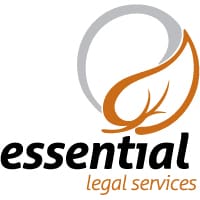What many business entrepreneurs do not understand is that it is entirely possible to be in a partnership without even knowing it! In Nevada, a general partnership agreement may be formed orally without a fancy written contract. The most common feedback from clients who have been sued is: “We don’t even have an agreement” or “We were going to put something in writing later…”
A very common mistake between many entrepreneurs is to initiate business without legal formalities. It typically begins with a novel idea, a spark of industry and imagination between a few individuals, and a plot to make their idea a reality. Take this set of circumstances for example that is all too familiar to business law attorneys:
Imagine four different individuals. Call them Engineer A, Investor B, and Manufacturers C and D. Parties A, B, and C have thought up an amazing idea for a new business venture and everyone is excited! They cannot wait to begin work on their new project and get Product X out to market!
Everything is going quite well, Engineer A, has developed a beautiful prototype. Manufacturer C has sourced product materials and potential shipping and warehousing space. Investor B has obtained the capital to begin work, but Investor B later informs Manufacturer D about the proposition as that may significantly reduce cost over time. Things become a little more complicated. Investor B approaches Engineer A and they have a discussion. It just makes business sense to go with Manufacturer D, doesn’t it? Of course, yes, why not? Manufacturer C starts to get the cold shoulder, no returned calls, missed lunch appointments, and is basically left out in the dark.
Fast forward two months and we have a disillusioned party who is angry when novel Product X hits the market and does well. Before Engineer A and Investor B can make it to the bank, they are served with a summons and complaint for breach of the oral partnership agreement, breach of their fiduciary duties, and a demand for Manufacturer C’s gross profits, along with a long list of other legal demands.
Under Nevada law, a partnership is an association of two or more persons to carry on as co-owners of a business for profit. See NRS 87.060. A partnership agreement means the agreement, whether written or oral or implied, among the partners concerning the partnership (including all amendments). See NRS 87.306. The intention of the parties will be the focus of the court. The parties must have intended to carry on a business as co-partners for profit.
Whether an oral partnership agreement has been entered into is a question of fact. Evidence can come in many forms, the strongest being the sharing of “gross profits” of any venture between the parties.
Nevada has recognized additional evidence that may demonstrate that a partnership is or is not formed including but not limited to: 1) how the parties hold title of property, 2) the designation by the parties that their entity is a “partnership”, 3) whether partners contributed money or services to the enterprise, 4) the amount of time or activity each party spends in the enterprise, and at times, 5) simply the mere mutual promises at inception leading to a determination of partnership.
So what does this all mean? Question of fact…intent…oral or implied…? Well, it means you could be in for a long and expensive lawsuit if an angry party asserts that they are a partner to your business venture and that you or others have breached the partnership agreement.
What can an entrepreneur do to protect himself or herself early on in the process of planning their next big venture?
1. If your intent is to create a partnership, then create a partnership agreement at the very beginning which is signed, sealed and delivered prior to starting any business activities. This agreement should contain, at a minimum, terms and conditions that govern the following:
Scope of workRoles and responsibilities of partnersShare of gross profits and liabilitiesDispute resolutionExit strategies
This provides protection from one party’s “fuzzy” recollection concerning these matters later on. It is much better to develop the agreement early in the process, while all parties are getting along, rather than rely on a jilted party’s memory after they have sued you.
2. If you do not plan on creating a partnership, it would be wise to obtain proof of its non-existence in writing as well. A signed statement, similar to the one below may save you from a frivolous lawsuit down the line. (Of course this statement is used as an example; any statement you utilize moving forward should be reviewed by counsel of your choosing).
Disclosure of Intent Not to Create a Partnership:
Nothing concerning today’s discussion shall be construed as creating a partnership or joint venture of any kind between (or among) the parties or as constituting either party as the agent of the other party. Neither party has the authority or power to bind the other party or to contract in the name of or create a liability against the other party in any way or for any purpose. All parties agree that a partnership or joint venture shall not be formed until all parties hereto have signed a fully integrated, written, agreement at a later date.
Sign and Date.
As with any legal planning, it should be left to those licensed to practice law. If you believe you have a great idea for a start-up venture, take a moment and schedule a quick consultation with trusted counsel. Minor legal planning from the onset may save you from expending unnecessary time, money, and your sanity in the long run. Protecting your business assets early will ensure a better defense from potential claims later on when you have much more to lose!
